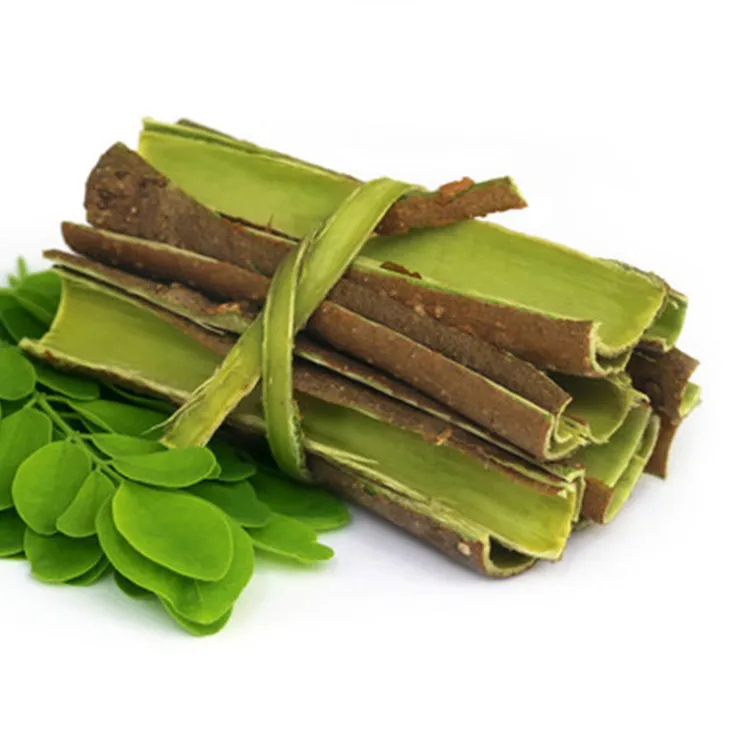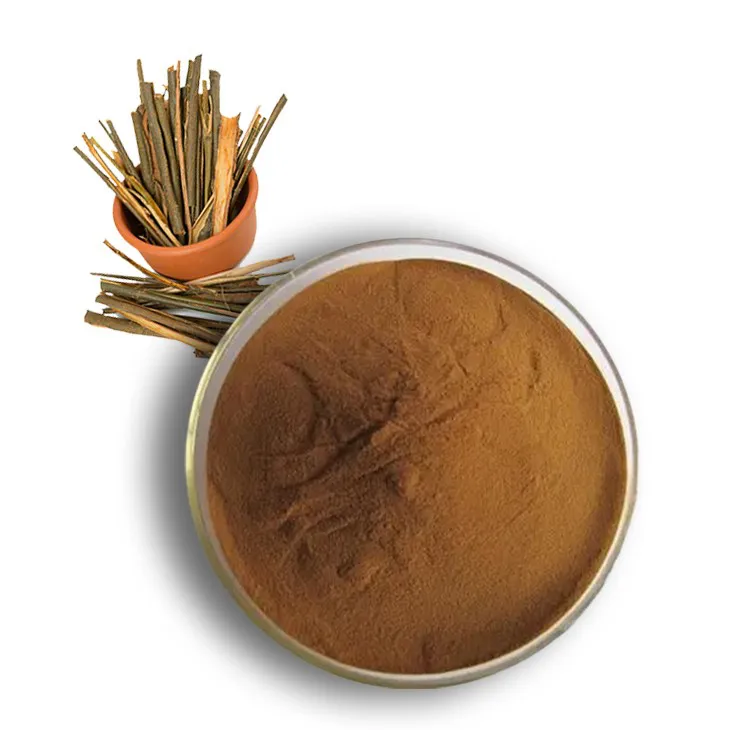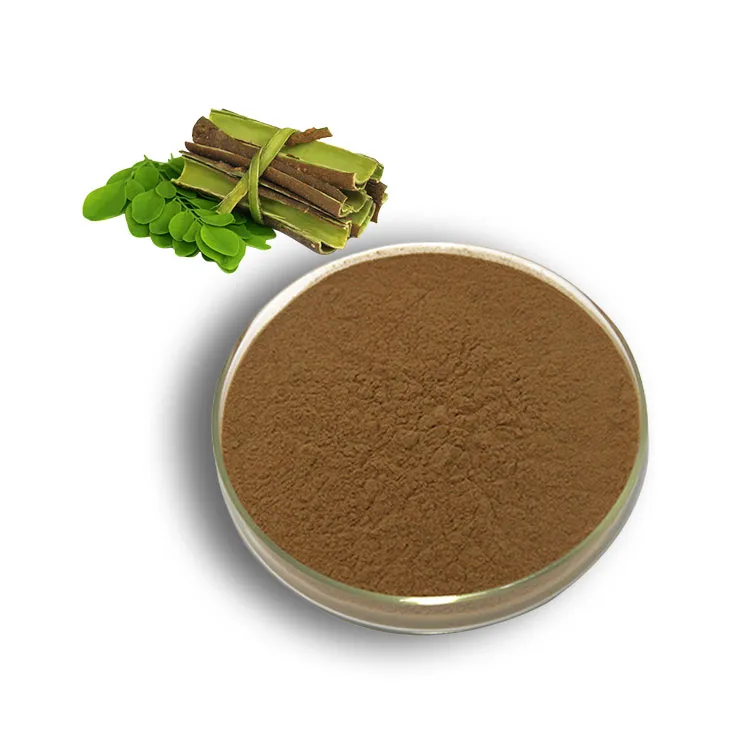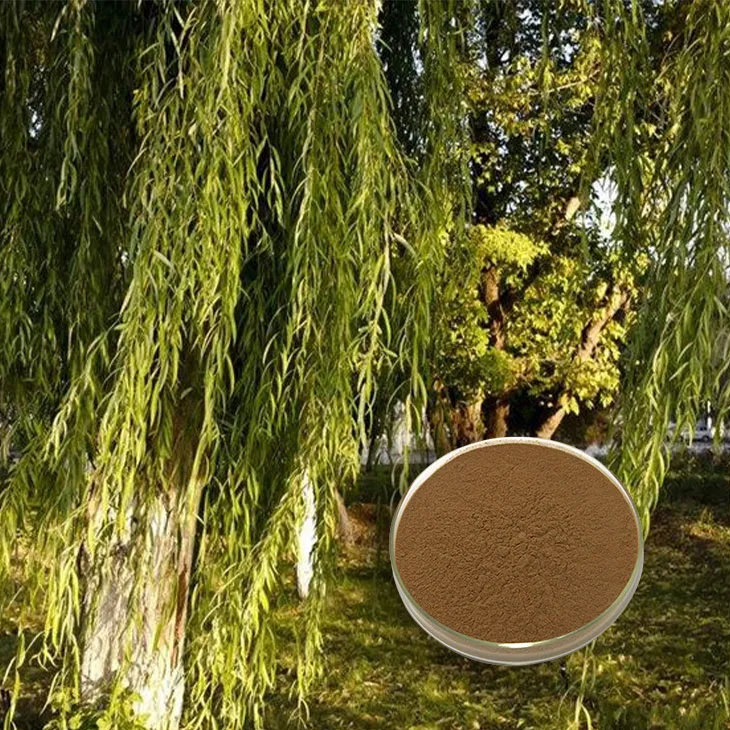- 0086-571-85302990
- sales@greenskybio.com
Benefits of white willow bark extract in cattle feed.
2024-11-13

1. Introduction
The use of natural additives in cattle feed has been an area of increasing interest in the livestock industry. White Willow Bark Extract is one such natural product that has shown potential benefits for cattle. Willow trees have been known for their medicinal properties for centuries, and now, their bark extract is being explored for its application in improving cattle health and productivity.

2. Stress Reduction in Cattle
2.1 The Impact of Stress on Cattle
Stress is a significant factor that can affect cattle in multiple ways. In modern livestock farming, cattle are often exposed to various stressors such as overcrowding, changes in diet, transportation, and environmental changes. These stressors can lead to physiological and behavioral changes in cattle. Physiologically, stress can disrupt the normal hormonal balance. For example, the release of stress hormones like cortisol can increase. This hormonal imbalance can have a negative impact on the growth and reproduction of cattle. In terms of behavior, stressed cattle may show signs of restlessness, reduced feed intake, and increased aggression towards other animals in the herd.2.2 How White Willow Bark Extract Helps
White Willow Bark Extract contains certain compounds that may play a role in reducing stress in cattle. One of the key components is salicin, which has properties similar to some anti - stress medications. It is believed that the extract can modulate the stress response in cattle by influencing the nervous system. By reducing the production of stress hormones or by altering the way the animal's body responds to stressors, the white willow bark extract can help cattle to better cope with stressful situations. This, in turn, can lead to improved growth rates as the animals are less likely to experience growth - stunting due to chronic stress. Additionally, for breeding cattle, reduced stress can enhance reproductive performance. For example, it can improve the estrus cycle regularity in female cattle and sperm quality in male cattle.
3. Rumen Health Promotion
3.1 Importance of Rumen Microorganisms
The rumen is a crucial part of a cow's digestive system. It is home to a diverse community of microorganisms, including bacteria, protozoa, and fungi. These microorganisms play an essential role in the digestion of feed. They are responsible for breaking down complex carbohydrates, proteins, and fats that the cow consumes into simpler compounds that can be absorbed by the animal's body. For example, bacteria in the rumen can ferment cellulose, a major component of plant - based feed, into volatile fatty acids, which are an important source of energy for the cow.3.2 The Role of White Willow Bark Extract
White willow bark extract can have a positive impact on the growth of beneficial microorganisms in the rumen. It may provide a favorable environment for these microorganisms to thrive. Some studies suggest that the extract can act as a prebiotic, which means it can selectively stimulate the growth and activity of beneficial bacteria in the rumen. This can lead to more efficient digestion of feed. When the beneficial microorganisms are more active, they can break down feed more completely, resulting in better nutrient absorption by the cow. This can also reduce the incidence of digestive disorders in cattle. For instance, a healthy rumen microbial community can prevent the overgrowth of harmful bacteria that may cause diseases such as acidosis or bloat.
4. Improvement of Milk Quality in Dairy Cows
4.1 Link between Cow Health and Milk Quality
The overall health of a dairy cow has a direct impact on the quality of the milk it produces. A healthy cow is more likely to produce milk with a better nutrient composition. Various factors related to the cow's health, such as its immune system function, digestive efficiency, and hormonal balance, can influence the quality of milk. For example, if a cow has a compromised immune system, it may be more susceptible to infections, which can affect the quality and safety of the milk.4.2 Influence of White Willow Bark Extract
White willow bark extract, through its effects on the cow's overall health, can contribute to the improvement of milk quality. As mentioned earlier, it can reduce stress and improve rumen health. By reducing stress, it can help maintain a stable hormonal balance in the cow, which is important for milk production. A healthy rumen, on the other hand, ensures better digestion and absorption of nutrients. This can lead to an increase in the content of important nutrients in the milk, such as proteins, fats, and vitamins. Additionally, the extract may also have antioxidant properties that can protect the milk from oxidative damage during storage and processing.
5. Other Potential Benefits
- Anti - inflammatory properties: White willow bark extract may have anti - inflammatory effects in cattle. Inflammation can occur in various parts of the animal's body due to infections, injuries, or other factors. By reducing inflammation, the extract can help cattle to recover more quickly from these conditions and also reduce the risk of chronic inflammatory diseases.
- Enhanced immune function: There is some evidence to suggest that the extract can boost the immune system of cattle. A strong immune system is crucial for protecting the animals from diseases, especially in a farming environment where they are exposed to a variety of pathogens.
6. Considerations for Use
- Dosage: Determining the appropriate dosage of white willow bark extract in cattle feed is crucial. Too low a dosage may not produce the desired effects, while too high a dosage may have potential negative impacts on the animals. Further research is needed to establish the optimal dosage levels for different stages of cattle growth and production.
- Quality control: Ensuring the quality of the white willow bark extract is essential. The extract should be sourced from reliable suppliers and should be free from contaminants. Standardized extraction methods should be used to ensure consistency in the composition of the extract.
- Interaction with other feed components: It is important to consider how the white willow bark extract may interact with other components in the cattle feed. For example, it may interact with certain medications or other additives, which could either enhance or reduce their effectiveness.
7. Conclusion
White willow bark extract has shown several promising benefits in cattle feed. It can reduce stress, promote rumen health, and improve milk quality in dairy cows. Additionally, it may have other potential advantages such as anti - inflammatory and immune - enhancing properties. However, more research is needed to fully understand its effects and to ensure its safe and effective use in cattle farming. With proper research and development, white willow bark extract could become an important natural additive in cattle feed, contributing to the overall health and productivity of cattle.
FAQ:
How does white willow bark extract reduce stress in cattle?
White willow bark extract contains certain bioactive compounds. These compounds may interact with the physiological systems of cattle, perhaps by modulating hormonal responses or neurotransmitter levels related to stress. However, the exact mechanisms are still under research.
Can white willow bark extract replace antibiotics in promoting rumen health?
While white willow bark extract can promote the growth of beneficial microorganisms in the rumen, it is not a direct replacement for antibiotics. Antibiotics are mainly used for treating bacterial infections, while the extract focuses on enhancing the microbial balance for better digestion. They have different functions, but in some cases, the extract can be used as a complementary approach to reduce the over - reliance on antibiotics in promoting rumen health.
How does white willow bark extract influence the nutrient composition of milk?
By improving the overall health of dairy cows, white willow bark extract can have an impact on the cow's metabolism. This, in turn, can affect how the cow processes nutrients from the feed and transfers them into milk. For example, it may enhance the uptake and utilization of certain vitamins or minerals, which then are reflected in the nutrient composition of the milk.
What is the appropriate dosage of white willow bark extract in cattle feed?
The appropriate dosage depends on various factors such as the age, weight, and health status of the cattle. Currently, research is ongoing to determine the optimal dosage range. It is crucial to ensure that the dosage is sufficient to provide the benefits but not so high as to cause any potential adverse effects.
Are there any potential side effects of using white willow bark extract in cattle feed?
Although white willow bark extract has many benefits, there may be some potential side effects. For example, in high doses, it might cause gastrointestinal disturbances in cattle. Also, individual animals may have different sensitivities to the extract. Continuous monitoring and further research are needed to fully understand and manage any potential side effects.
Related literature
- The Use of Herbal Extracts in Livestock Nutrition: A Review"
- "Beneficial Effects of Natural Compounds on Rumen Function and Animal Performance"
- "White Willow Bark Extract: Potential Applications in Animal Husbandry"
- ▶ Hesperidin
- ▶ Citrus Bioflavonoids
- ▶ Plant Extract
- ▶ lycopene
- ▶ Diosmin
- ▶ Grape seed extract
- ▶ Sea buckthorn Juice Powder
- ▶ Fruit Juice Powder
- ▶ Hops Extract
- ▶ Artichoke Extract
- ▶ Mushroom extract
- ▶ Astaxanthin
- ▶ Green Tea Extract
- ▶ Curcumin
- ▶ Horse Chestnut Extract
- ▶ Other Product
- ▶ Boswellia Serrata Extract
- ▶ Resveratrol
- ▶ Marigold Extract
- ▶ Grape Leaf Extract
- ▶ New Product
- ▶ Aminolevulinic acid
- ▶ Cranberry Extract
- ▶ Red Yeast Rice
- ▶ Red Wine Extract
-
Phellodendron Extract
2024-11-13
-
Lily extract
2024-11-13
-
Agaricus Blazei Extract
2024-11-13
-
Maca Extract
2024-11-13
-
Curcuma Longa Extract/Turmeric extract
2024-11-13
-
Longan Extract
2024-11-13
-
Artichoke Extract
2024-11-13
-
Camu Camu Extract
2024-11-13
-
Cat Claw Extract
2024-11-13
-
Europen Bilberry Extract
2024-11-13





















